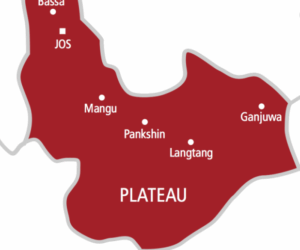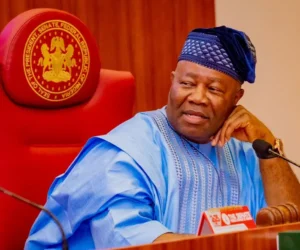The United Kingdom Government has pledged £19 million to strengthen Nigeria’s health and education systems against the growing threats of climate change, unveiling 84 climate-resilient schools and healthcare facilities across Kano and Jigawa States.
The projects, launched under the Climate Resilient Infrastructure for Basic Services (CRIBS) initiative, were jointly inaugurated by the UK Government, Nigeria’s Federal Ministry of Health, UNICEF, and the Kano and Jigawa State Governments.
Nigeria is ranked as the second most vulnerable country in the world to climate-related risks affecting children, with millions exposed annually to floods, droughts, and extreme heat.
The CRIBS programme, developed in partnership with the UK Government, the Federal Government of Nigeria, state authorities, UNICEF, the World Bank, the World Health Organisation, Crown Agents’ UK Lafiya Programme, JigSaw, Fab Inc., and Sextant Foundation, is designed to safeguard frontline services from these climate shocks.
According to a statement by the British High Commission on Tuesday, under the first phase of the programme, 39 primary healthcare centres and 45 schools in Kano and Jigawa were renovated with climate-smart features.
These include improved structural resilience, water and sanitation upgrades, and energy-efficient systems designed to withstand extreme weather events.
Speaking at the inauguration, Cynthia Rowe, Head of Development Cooperation at the British High Commission in Abuja, described the initiative as a model of affordable and scalable solutions to climate vulnerability.
“The UK Government is proud to support Nigeria through this £19m commitment to the CRIBS programme. This work shows how climate-resilient infrastructure can improve access to basic services for vulnerable populations. We hope this model inspires broader replication across Nigeria.”
Wafaa Saeed, UNICEF’s Country Representative in Nigeria, also highlighted the power of partnerships in driving resilience at the community level.
“By investing in climate-smart infrastructure, we are not only protecting services but also empowering communities to safeguard their children’s future.
“CRIBS is a model for how we can build resilience where it matters most at the frontline of service delivery”, Saeed said.
Launched in April 2024, CRIBS is led by UNICEF as the main implementing partner and funded through the UK’s Foreign, Commonwealth & Development Office (FCDO).
The Commission noted that following successful rollouts in Kano and Jigawa, the initiative is now being expanded to Bauchi, Enugu, Gombe, Kaduna, and Katsina States.








